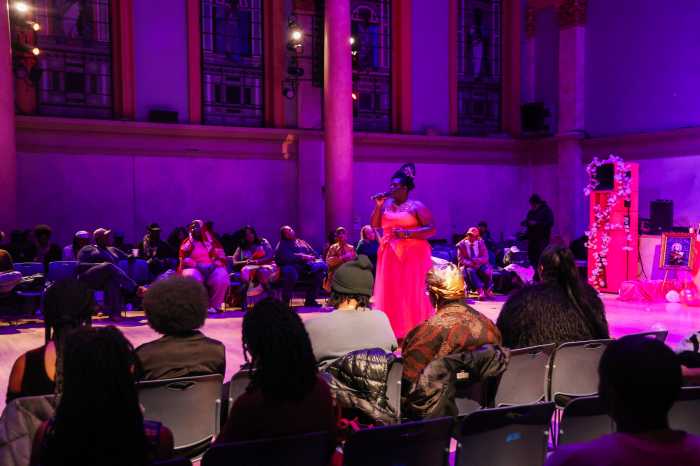Michael Grandage’s “Don Giovanni” is strike three for the Met
“Don Giovanni” is a third time unlucky at the Metropolitan Opera. Following a concept-free baroque pageant by Franco Zeffirelli and a dully-utilitarian redbrick run-through from Marthe Keller, Michael Grandage’s new production is visually and dramaturgically barren.
First, James Levine withdrew due to another back injury, but luckily the versatile new principal conductor Fabio Luisi was willing to step in. Then, at the final dress rehearsal, star baritone Mariusz Kwiecien suffered a herniated disc that required surgery. Fortunately, Peter Mattei, a successful Don Giovanni in two prior revivals, was at the Met concurrently singing Rossini’s Figaro and stepped in for the first three shows. Musically, there are no losses with either substitution.
The new production’s towering unit set by Christopher Oram consists of moveable building facades with multi-tiered rows of shuttered doors and balconies with peeling paint in dull pastels and taupe. When the downstage set is shuffled off into the wings, the audience is treated to yet another upstage set of identical buildings. Visually monotonous and lacking aristocratic elegance — despite the addition of a few velvet drapes and chandeliers in the ballroom scene — the entire opera seems to take place on the premises of a dilapidated New Orleans hotel.
The sets push the singers into a narrow playing area downstage where not much happens except entrances and exits, with occasional appearances on the upper balconies. Grandage misses basic points in scene after scene. In the first scene where the Don kills the Commendatore, Luca Pisaroni’s Leporello, instead of hiding, remained onstage and, after impassively witnessing the entire duel, inquired, “Who was killed — you or the old man?” His question to Don Giovanni had no point, humorous or otherwise. The audience laughed at the line from reading the Met titles, not in reaction to the stage action.
The Don Giovanni here is merely a pleasant rake without the darker undercurrents of sociopathy, nihilistic egotism, or existential defiance revealed in more intellectually probing productions. The characterizations all around are standard issue, with the only individual touches coming from what the singers themselves bring to the table. The whole thing felt like a revival on its last legs.
Musically, things are on a higher level. Luisi’s tempos were fleet; the orchestral texture, light and transparent. All hints of proto-Romantic grandiosity were expunged along with the contrast between the tragic and comic elements of Mozart’s score.
Mattei’s Don was smoothly sung but lacked the dynamism of his earlier Met appearances. Pisaroni’s Leporello was more a wily Molière manservant than buffo sidekick. With his focused, lithe bass-baritone and alert acting, Pisaroni made the best of what he was given.
Veteran Ramon Vargas, always an elegant stylist, made a virile, forthright Don Ottavio. Despite occasional vocal fatigue, Vargas expertly phrased the coloratura runs of “Il Mio Tesoro” as part of a flowing musical line. Barbara Frittoli’s Donna Elvira, touchingly real in her loyalty and confusion, had a softly glowing timbre with fleeting moments of unsteadiness.
Joshua Bloom’s resonantly sung Masetto was a characterful mix of lunk and hunk. Stefan Kocán’s light-toned bass failed to sound the note of doom as the Commendatore.
Met debutante Marina Rebeka’s Donna Anna was neatly, correctly sung with a brightly focused, ruby-toned lyric soprano. The petite, attractive Rebeka had limited tonal variety and expansion for Anna’s more dramatic utterances. Mojca Erdmann also debuted as a vocally undernourished Zerlina — a small-house Papagena or Barbarina lost in the big leagues.
Peter Gelb has once again lured a hot “name” director from theater or film into opera offering total artistic and financial freedom. Once again, Gelb has failed to guide the operatic neophyte in focusing the production concept. This “Giovanni” is another total miss and cannot be turned into a hit with recasting, restaging, or a fresh coat of paint.
































